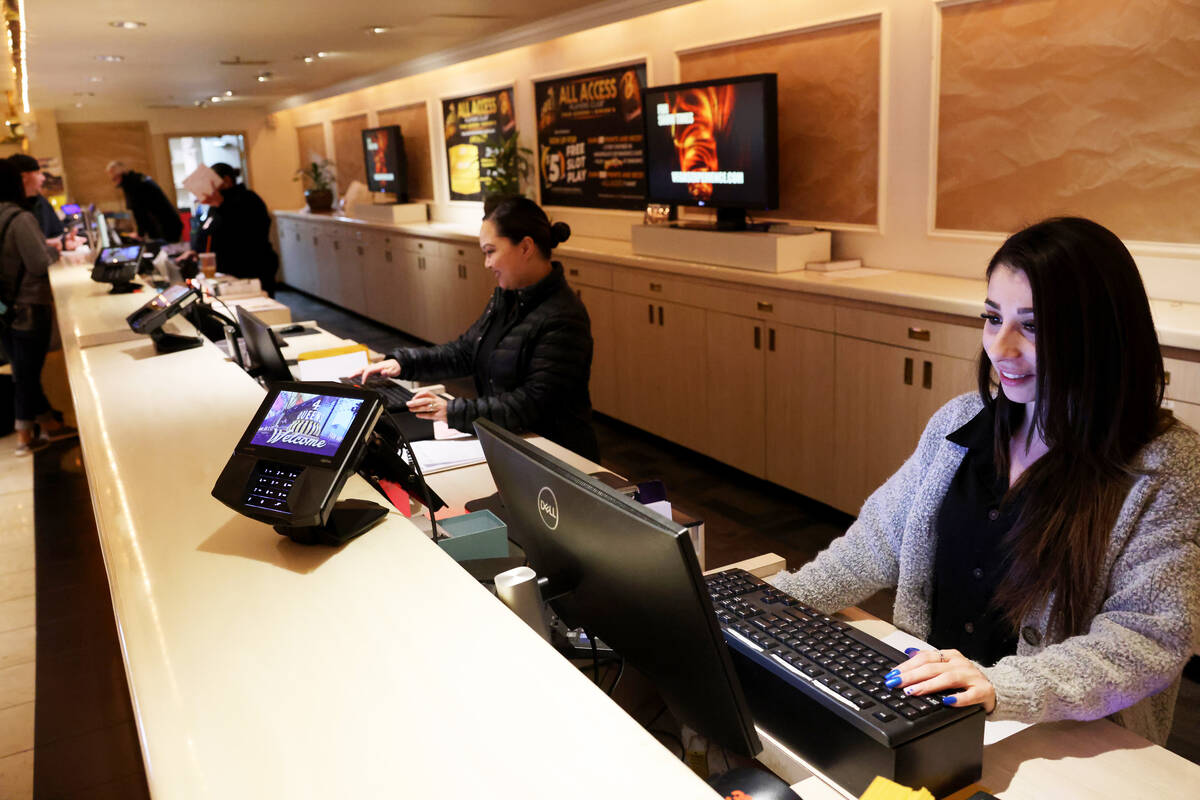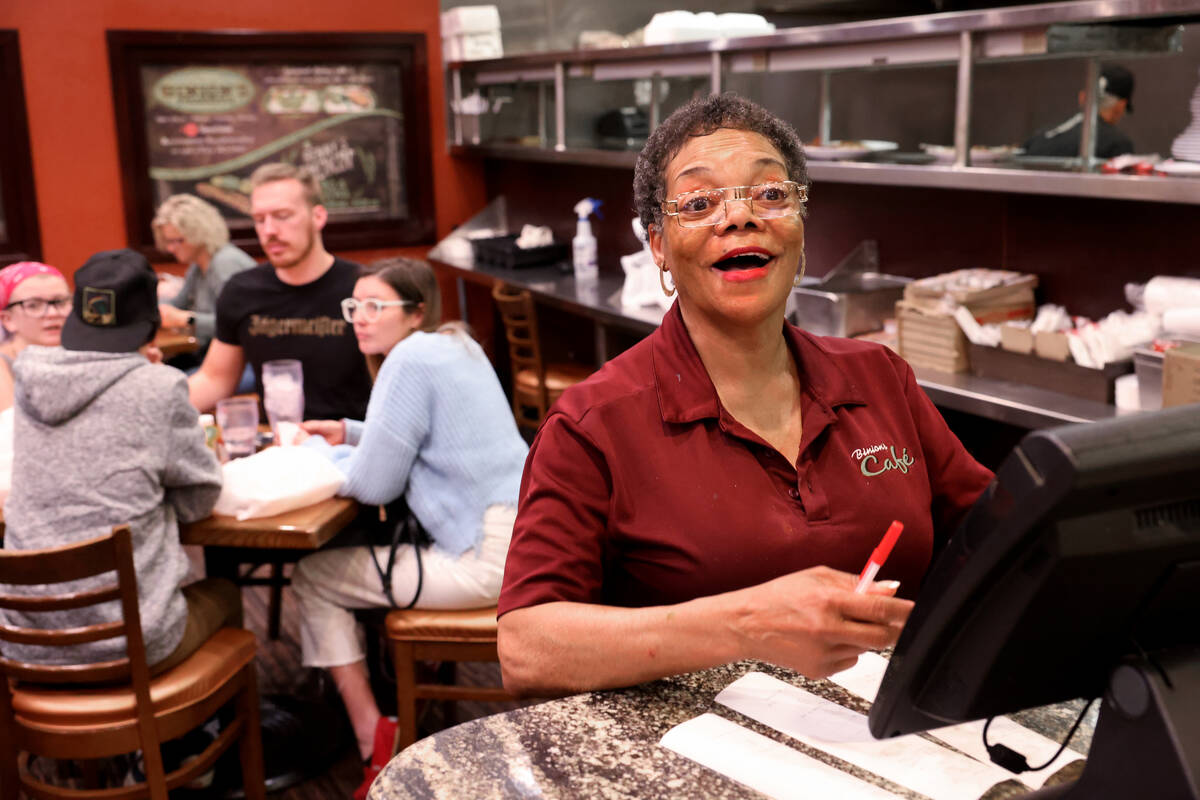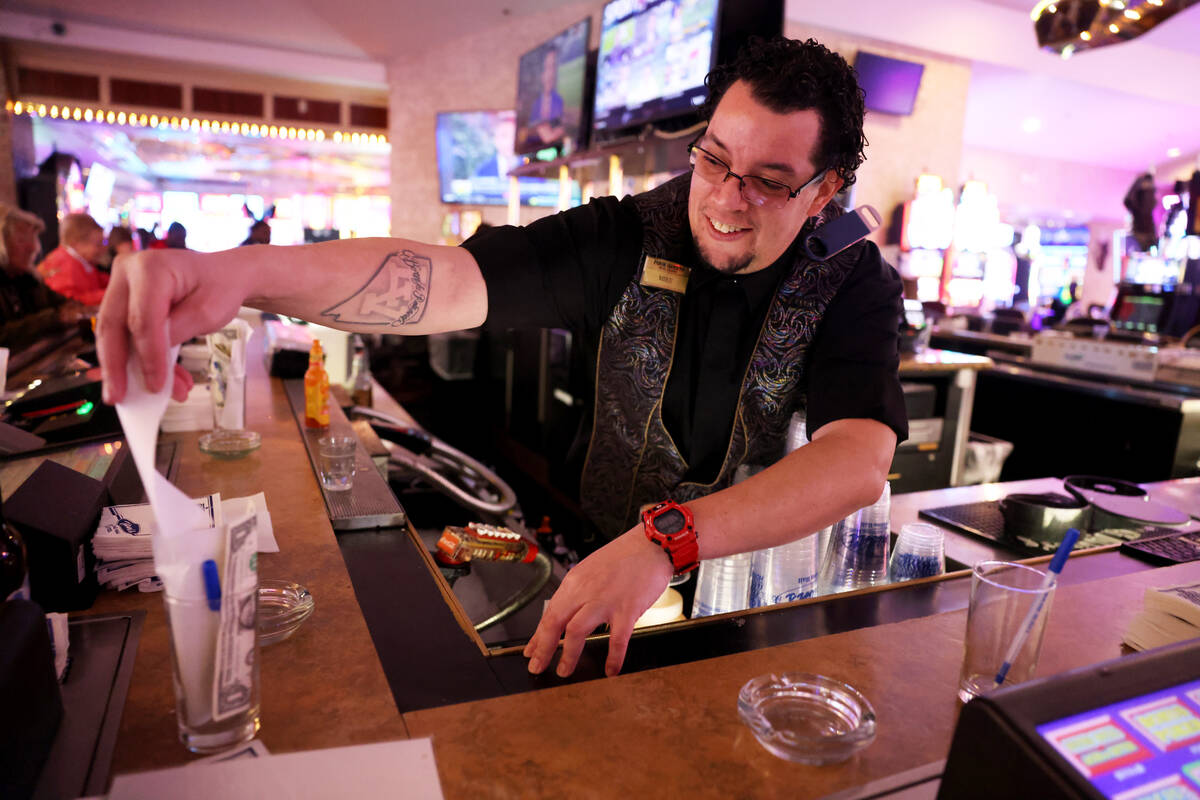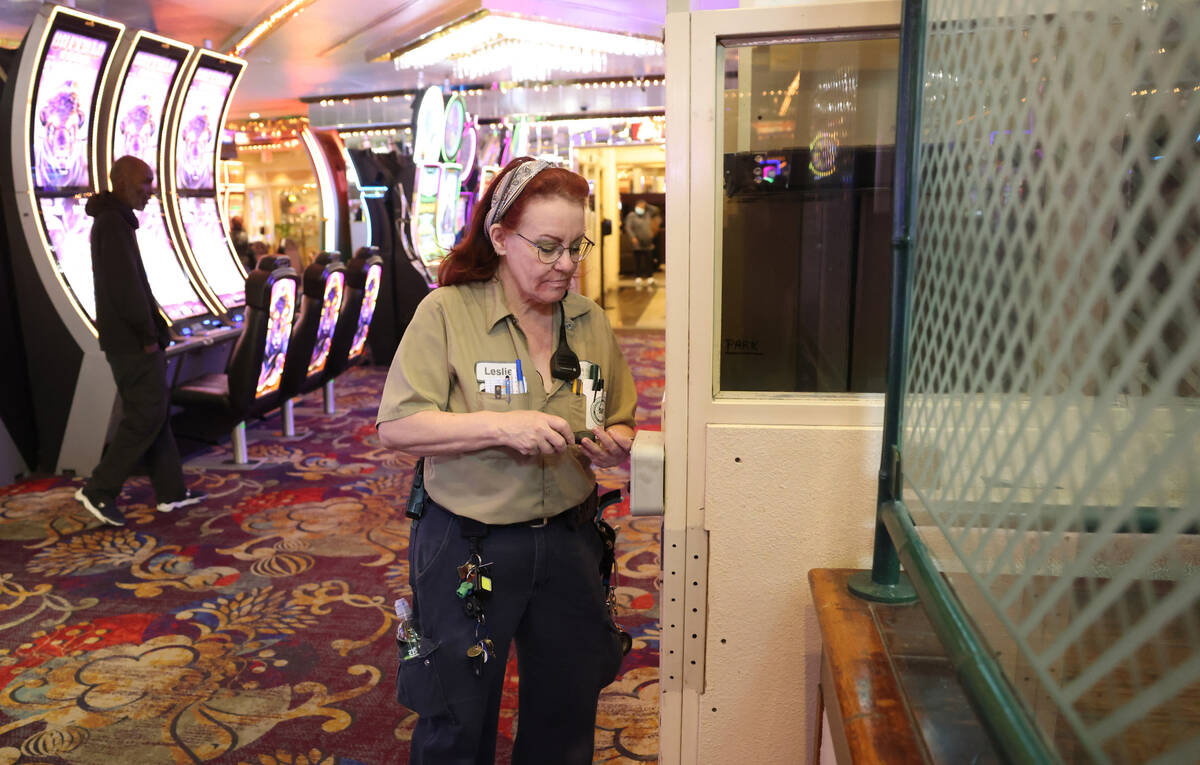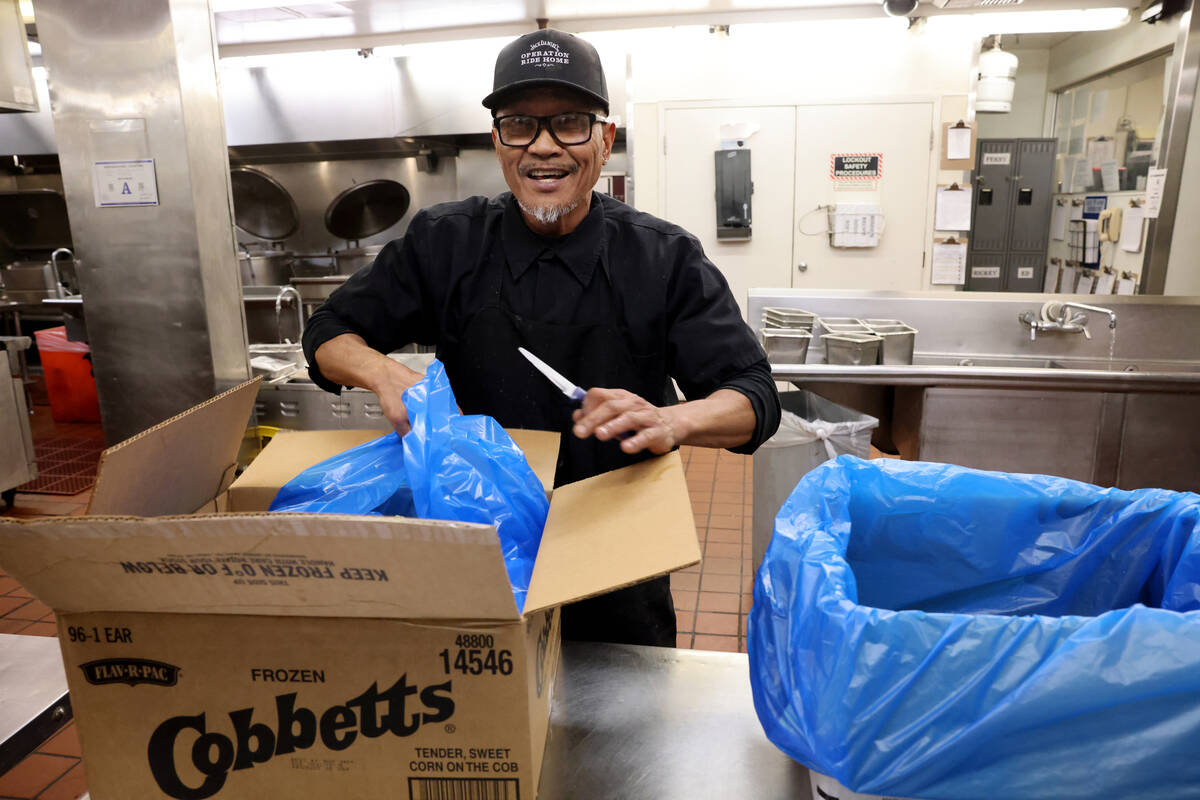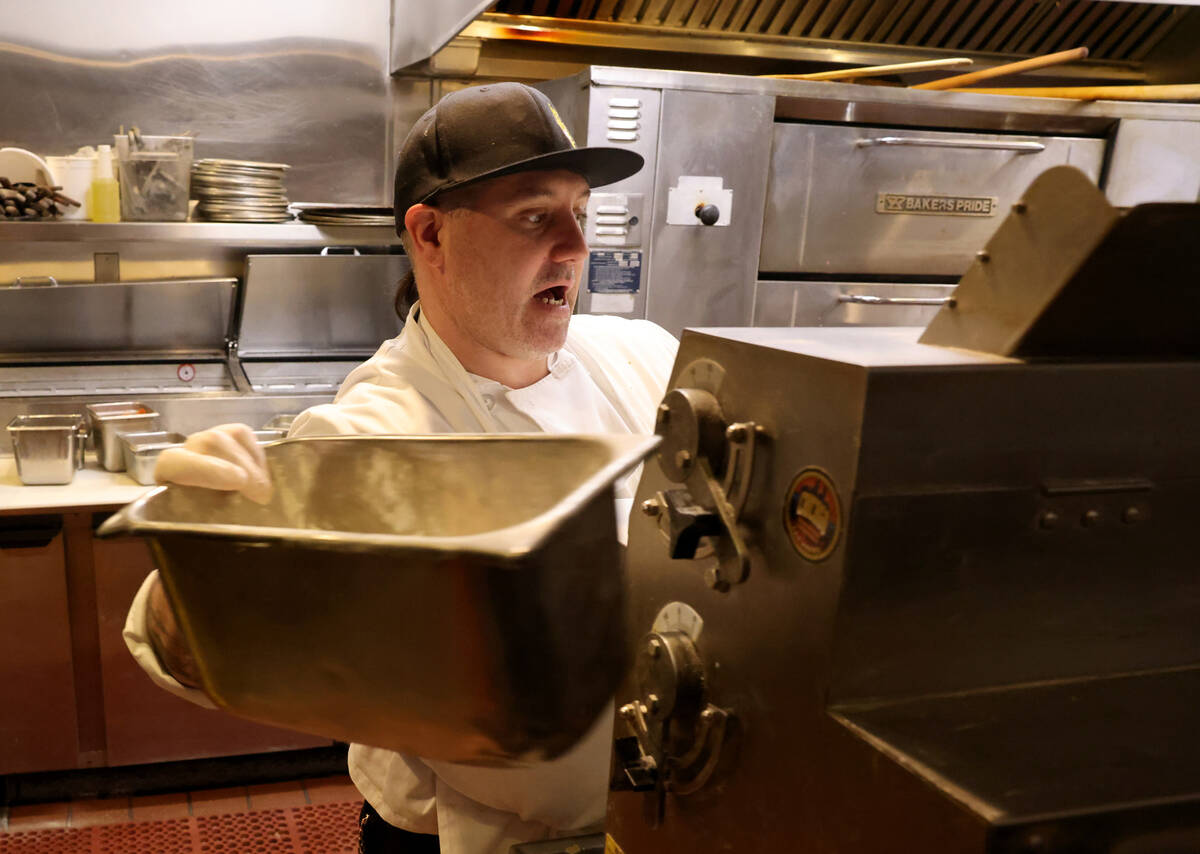Nevada’s hospitality sector hit hard by ‘Great Resignation’
Las Vegas resident Yodit Belete was looking for a server or bartending job at last month’s massive Spring Job Fair, hosted by Clark County.
She moved to Las Vegas in early March and wanted work at one of the newer Strip properties.
“Finding a job in Vegas, I feel like it’s about a connection,” Belete said. “You have to have a plug; you have to know people. It don’t matter how you look, what kind of experience you have — it don’t matter. It’s that you need people that know someone, someone knows someone.”
Nevada leads the nation when it comes to the pace of jobs added each month, clocking in at 5.1 percent in February, according to the most recent data from the Bureau of Labor Statistics. Texas and Florida follow behind, each with a job growth rate of 4.6 percent.
And there are about four job openings for every three workers in Nevada, according to the Department of Employment, Training and Rehabilitation.
Though Nevada recovered all the jobs lost during the pandemic by July 2022, the leisure and hospitality sector — made up of casino, hotel, food, restaurant, nightlife and entertainment workers — has not fully recovered. As of February, leisure and hospitality is about 3,600 jobs shy of its pre-pandemic peak in January 2020. Some subsectors like accommodation, which includes jobs like housekeeping and front desk attendants, are still lagging while others, like food service, have fully recovered and added more jobs.
“When you look at the last six months or so, that pace has been slowing,” DETR Chief Economist David Schmidt said of the accommodation subsector. “That’s where we’re not necessarily adding a lot of new jobs. That’s settling into (what this) industry looks like, at least in the short-term, moving forward.”
The result is a tight job market for the leisure and hospitality industry, as many workers have either left the industry for other careers — or the labor force.
Post-pandemic recovery
Some employers say it’s hard to find workers even though they offer competitive wages and more benefits.
Vicki Gasca, assistant human resources director at TLC Enterprises, operators of Binion’s and Four Queens casinos in downtown Las Vegas, said the company was hiring for “every department imaginable.”
Gasca goes to every job fair she can to reach potential applicants, but many seem more interested in remote work.
“Our workforce retired, especially since the pandemic,” she said. “They decided they weren’t going to deal with people anymore. So now we’re all going to have to replace them, not to mention all the new positions there are.”
Seasonally unadjusted data show that the accommodation sector in particular is still facing a labor shortage.
In the Las Vegas area, the accommodation and casino-hotel subsectors recovered about 86 percent of jobs in February compared to the pre-pandemic peak in March 2019, according to DETR’s seasonally unadjusted data. Both sectors had a job growth rate of about 9 percent year over year. For comparison, food services and drinking places recovered 112 percent of its pre-pandemic peak employment in February, with a job growth rate of 7.2 percent year over year.
Amanda Belarmino, assistant professor at UNLV’s William F. Harrah College of Hospitality, said the local industry’s hiring trends are a reflection of the industry at large, where tourism and travel demand has returned but competition for employees is intense.
“The Great Resignation has been particularly hard on the hospitality sector due in part to lingering uncertainty from COVID regarding future closures for pandemics, employees who were forced to find other employment when hospitality businesses were closed or at reduced capacity, and Gen Z workers who have chosen to leave the workforce and live with their parents,” Belarmino said in an email.
In January, Nevada had 114,000 job openings, or 0.8 unemployed people per job opening, according to the BLS’ most recent Job Openings and Labor Turnover Survey, released March 30. The job openings rate, or the fraction of job openings related to total employment, was 6.9 percent, but the hiring rate was 4.9 percent, according to seasonally adjusted preliminary data. That’s higher than the national job openings rate of 6.5 percent and 4.1 percent hiring rate.
Mixed signals
Despite employer demand, many job seekers say it’s not easy getting hired. Belete said she was frustrated with the job application process because of the lack of communication from employers. Many advertise they’re hiring but it doesn’t feel sincere, she said.
“It’s hard to find a job, actually, because they keep telling you, ‘We have openings,’ ” Belete said. “But once you actually (apply), they’d be like, ‘We’re already full, but we might email you or call you.’ ”
The changing nature of the hiring process could be behind that, according to Ryan Berger, branch director at professional staffing agency Robert Half’s Las Vegas office.
He said the pandemic spurred a rapid evolution of the hiring process from mostly in-person interviews to mostly virtual interviewing, and it has created a double-edged sword. Now, it’s faster and more convenient to move through an application process.
“But (job applicants) sometimes find it a bit of a black hole, just applying and not hearing back,” Berger said. “It’s incumbent upon the recruiter to establish realistic expectations with job seekers.”
Culinary Local 226, whose membership is comprised of casino and hotel workers, said its membership is down approximately 20 percent since the pandemic’s onset. They say some jobs were lost to technological advances that eliminated positions while others were the result of reductions in services or offerings that didn’t come back, like shuttered buffets and restaurants.
A new normal?
Smaller teams because of a worker shortage can lead to more responsibilities for those on the job, said Culinary Secretary-Treasurer Ted Pappageorge. The union is concerned about companies increasing workloads for teams with fewer workers than before the pandemic, such as guest room attendants.
Pappageorge said the union plans to address full-service room cleanings when negotiating its next citywide contract once the current one ends June 1. It also is pushing for “the largest wage increases ever” to address inflation and the significant competition for jobs.
With less frequent room cleanings, the work becomes harder and guests could have a bad experience that reflects poorly on the city, like the news that University of Connecticut’s men’s basketball team had to switch hotels on the Strip before its game with Arkansas last month. UConn, which would go on to win the NCAA men’s basketball championship, reportedly switched properties because their rooms were not clean.
“We get it, in the pandemic companies had to cut,” Pappageorge said. “But we’ve seen this too many times, during the Great Recession and other times, where companies are quick to cut and slow to bring back the workforce as necessary.”
Historical data from DETR show casino and hotel employment took years to recover from previous peaks when looking at the last three recessions. For instance, casino and hotel employment totals in the Las Vegas area peaked at 174,900 in July 2006 then lost 22,300 jobs by July 2009 as the Great Recession ended. The subsector never fully recovered through the 2010s, briefly reaching 160,900 workers in August and September of 2014 and falling to 150,500 workers by December 2018.
Employment in accommodation and food services remained fairly flat between June 2022 and January 2023, with total subsector employment ranging between about 146,000 to 147,500. More jobs were added in February with 148,400, according to DETR.
Meanwhile, the statewide turnover rate — or the rate of people being hired and leaving their jobs — is 12 percent, the second-lowest in the nation after Hawaii, when compared to other states’ accommodation sector, according to fourth quarter 2021 data, the latest available, from the U.S. Census Bureau. That suggests Nevada is holding on to workers more and hiring them more slowly, Schmidt said.
Those trends are ones to follow, he said. Schmidt noted he’s watching to see if the leisure and hospitality subsectors reach pre-pandemic employment levels or if growth remains flat.
“We’ll hope to see if we’re getting settled into a new normal for how business is done versus getting back to the jobs that were lost,” Schmidt said.
McKenna Ross is a corps member with Report for America, a national service program that places journalists into local newsrooms. Contact her at mross@reviewjournal.com. Follow @mckenna_ross_ on Twitter.



